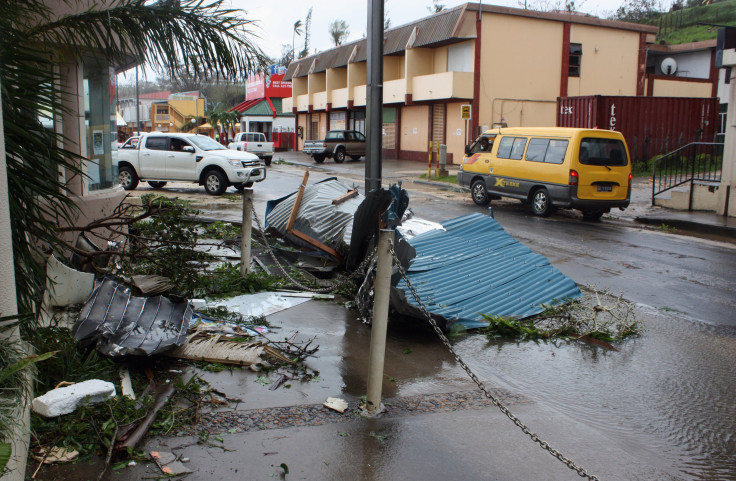Cyclone Pam Likely Devastated Vanuatu Farming Infrastructure, Stranded Rural Residents

Cyclone Pam’s destructive path over the weekend through the Pacific archipelago of Vanuatu could have disastrous consequences for the economic infrastructure of what was already considered one of the world’s poorest economies. The massive storm, which tore through the region with winds of more than 300 miles per hour, caused massive damage to homes in Vanuatu’s capital city of Port Vila and severed contact between government officials and residents of more remote islands.
The United Nations lists Vanuatu (pronounced Vah-noo-AH-too), a chain of 83 islands located about 1,250 miles from Australia, as one of the world’s least developed countries, with a gross domestic product of just $828.2 million in 2013, according to the World Bank. The nation’s economy relies mostly on subsistence farming, fishing and tourism to support its approximately 250,000 inhabitants, most of whom live in rural areas. But a spokeswoman for World Vision, an aid group which responded to the storm scene, said Cyclone Pam has likely destroyed Vanuatu’s farming infrastructure and left many without food, water or shelter.
“This is going to need a long and sustained response. People in Vanuatu are subsistence farmers. They grow food for their own consumption. Crops will be absolutely wiped out from this,” World Vision spokeswoman Chloe Morrison told Reuters.
At least eight Vanuatu residents have died as a result of Cyclone Pam, though officials fear the total will rise far higher when contact is reestablished with inhabitants of the nation’s outer islands. As many as 70 percent of Vanuatu’s populations lives in these remote areas, which even before the storm lacked ample drinking water or electricity, according to the BBC. Vanuatu President Baldwin Lonsdale said Cyclone Pam destroyed 90 percent of Port Vila’s buildings and pled with the international community to send aid.
“The humanitarian need is immediate, we need it right now,” he told Agence France-Presse. “After all the development we have done for the last couple of years and this big cyclone came and just destroyed all the infrastructure the government has built. Completely destroyed.”
Authorities in Port Vila have begun to restore order in the capital city, but there’s no clear indication of how rural areas have coped with the storm or its aftermath.
“Things in Port Vila are improving, people are returning to the market and getting on with the job of starting the clean-up, but the key thing is we still have no contact with other provinces,” CARE Australia spokesman Tom Perry told Reuters. “That’s of grave concern because there’s no real sense from anyone of what the impact has been, but we know in the south in particular, it sat under the eye of the storm for hours.”
Several nations and organizations, including Britain, Australia, New Zealand and the International Monetary Fund, have already pledged to provide Vanuatu with financial aid. Britain and France jointly ruled Vanuatu, which was once known as New Hebrides, until it gained independence in 1980.
© Copyright IBTimes 2025. All rights reserved.






















